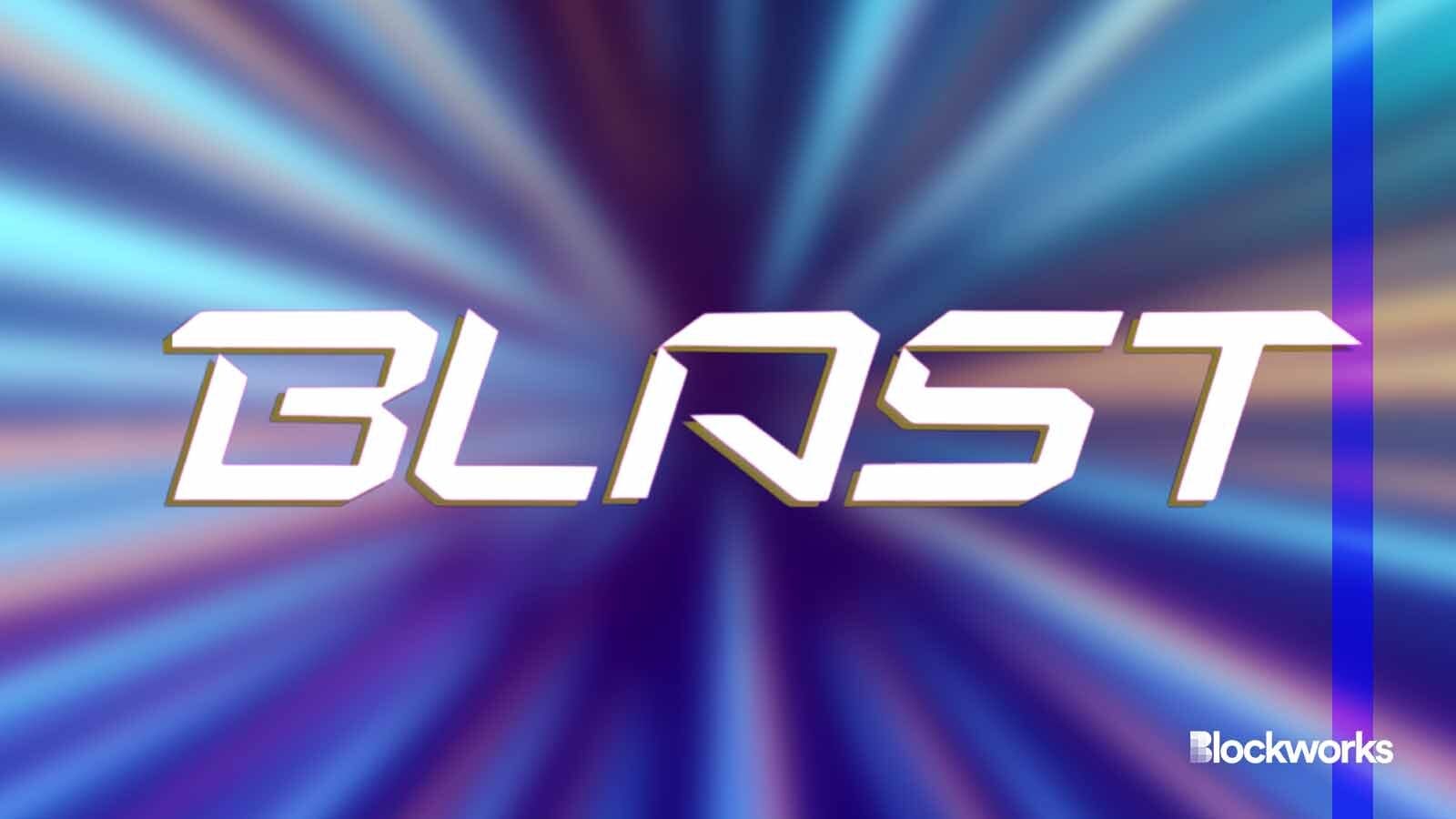Blast launch leaves users confused about withdrawals
Blast encouraged users to deposit into its multisig. Now they can finally exit

Blast and Adobe Stock modified by Blockworks
Blast launched its optimistic rollup late Thursday, fulfilling a pledge to allow users to withdraw funds locked in a team multisig for over three months.
The value of user deposits crept up to nearly $2.3 billion by launch time. Now users have a choice: withdraw or find something to do with the funds on the newly launched layer-2.
Data from DefiLlama early Friday showed that the balance of the Blast bridge contract had plummeted by about 70%, which CoinDesk reported as “$1.6 billion outflows.”
The actual amount of withdrawals is not that clear-cut. Funds are moving out of the deposit contract at a healthy clip, but the capital — mostly Lido staked ether (stETH) — are moving into Blast’s ETH Yield Manager Proxy — not leaving the network as a result of user withdrawals.
Read more: Blast from the past: 3 years on from the launch of ETH staking
Certainly, some withdrawals are to be expected, given that ether (ETH) has run up about 70% since Blast invited users to lock up their capital for over three months in exchange for a points IOU.
Many depositors appear to be jumping at the chance to reclaim their funds, based on dozens of discussions in the Blast Discord channel. However, some say they were unaware of the delay period required to use Blast’s bridge back to Ethereum.
Complaints such as these can be found in the Blast Discord since launch
Due to the particulars of Blast’s optimistic rollups design, depositors must wait 14 days and pay Ethereum gas fees to move their deposits back to mainnet. Optimistic rollups, like OP Mainnet, typically have a seven-day withdrawal delay. Known as the challenge period, this delay allows for the submission of fraud proofs to ensure the integrity of transactions before they are finalized.
The Blast developer documentation says the extended period is a “security feature designed to help secure Blast.” Blockworks has reached out to Blast representatives for clarification.
Dedicated third-party bridge dapps may offer faster transfers, but for a fee. For instance, Orbiter charges 1.5% for the privilege.
Blast has been a marketing phenomenon up to now. Spearheaded by NFT dapp Blur founder Tieshun Roquerre, known by his online moniker “Pacman,” it launched with great fanfare last November.
Backed by serious investors and promoted by widely followed influencers, all while any semblance of working project was months away.
Read more: Blast TVL hits $390 million, with no product
Since then, it hired developers, forked the OP stack, and continued to gain users lured by the promise of Blast points in addition to ETH staking yield.
85,000 accounts have access to the Blast Discord, and the team incentivized scores of independent developers to build on the platform through its Big Bang campaign.
57,000 wallets have interacted with the chain since the layer-2 when live, data shows. About $40 million is now tracked in DeFi dapps by DefiLlama, mostly borrowing and lending market ZeroLend, an Aave v3 fork.
But it has also been beset by rug-pulls. At least six of the many meme coins launched so far have been scams that became worthless, Dexscreener shows.
Read more: Average potential crypto rug pull makes $2,600 in profit: Chainalysis
One, a gambling project aptly called RiskOnBlast, absconded with 420 ether, worth more than $1 million raised in a token sale ahead of the Blast launch.
Assuming Blast retains at least $1.88 billion of the deposits received, it will be the third-largest layer-2 network on Ethereum, a remarkable feat.
Can Blast carve out its own niche in an increasingly crowded Ethereum rollup market?
Get the news in your inbox. Explore Blockworks newsletters:
- The Breakdown: Decoding crypto and the markets. Daily.
- 0xResearch: Alpha in your inbox. Think like an analyst.






